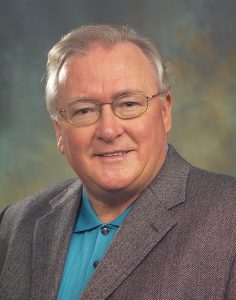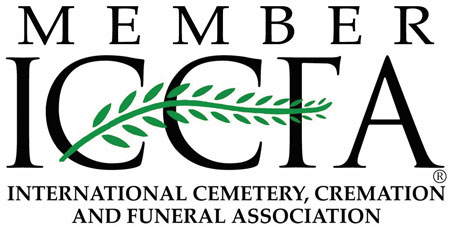Truths About Grief

Grief is anything but predictable, and in a culture where grief is taboo, it’s no wonder it’s difficult to find the right words or truly help someone who has experienced a deep, deep loss. To help us understand what a grieving person really needs, we’ve interviewed internationally renowned grief counsellor Dr. Bill Webster, who will be hosting a seminar at our Kelowna funeral home in October (details below).
For those hoping to support friends or loved ones who are grieving in meaningful ways, in this article, Dr. Webster shares five truths about grief:
1. It’s OK to grieve
“Be strong.” “Pull yourself together.” “Life goes on.” They’re all expressions we say to people who are grieving. We don’t understand death because we don’t talk about it—because death and grief are taboo in western culture. And so, if someone’s grief makes others feel uncomfortable, “they might feel like they don’t have permission to grieve,” says Webster.
He’s spent 35 years helping people move through grief, simultaneously working to validate and legitimize grief.
“Grief is not a sign of weakness. It’s a sign that you cared.”
Webster says it’s especially important for caregivers and health professionals to understand the process and see it as that—not a mental disorder but “a natural human reaction to an unwelcomed event.”
2. Grief can look like a lot of things
No two losses will be the same, and in the day-to-day, the impact of that loss can take many shapes, including:
• Confusion
• Lack of concentration
• Impaired memory
• Feelings of anxiousness and irritability
• Feelings of anger and guilt
• Depression
“These are symptoms of what’s really going on,” says Webster. “Their world has changed. Their world has been turned upside down. We have to normalize but not minimize it.”
3. It’s important and necessary to talk about grief
Grieving people need help. And they need to talk.
“The way to deal with emotions is to talk about them. Most people mean well and they’re sincere, but they think talking about it will make it worse, but it doesn’t, it makes it better.”
Webster recommends finding a community grief support group, so that those who are grieving find permission and community in sharing their experiences.
“People can come together with others who are in the same boat to share common experiences and support one another.”
4. Grief is a long and winding road
There’s a quote in Webster’s booklet Lost for Words that says, “Grief always takes longer than those who have been through it seem to think.”
One of the deepest myths about grief is that it has a timeframe, and that the timeframe is linear. But the truth is, “grief comes and goes. Something will happen that will trigger a grief response.”
The first year of loss—first birthdays, Christmases and anniversaries—can make it all feel like yesterday that their loved one passed away. Whatever unpredictable turns one’s grief may take; they should feel supported and not rushed.
“People need to take their own time and not be forced into an artificial timeframe. People want to see their loved ones back to normal, but they’re going back to a different type of normal. We have to give people permission to grieve, and that means accepting them as wounded people who need to go through their pain.”
5. There are simple ways to support a friend or loved one who is grieving
“Let me know if there’s anything I can do.” It’s another expression we impart on those in bereavement, and often hear in the hallways at our Kelowna funeral home. But the grieving person likely doesn’t know what they need or won’t feel comfortable asking if they do.
Webster suggests offering specific gestures of help, such as:
• Can I drive you to the doctor?
• Can I join you to walk the dog?
• Can I watch your kids so you can go to yoga or have dinner with a friend?
“If it’s specific, it’s easier for people to say ‘yes’ or ‘no.’”
Those outside of grief might also not realize how important it is to simply ‘show up’ for their grieving friend or loved on.
“One of the biggest issues grieving people face is abandonment. Keep trying—ask them to lunch, visit, give them a call. They need to know that you care.”
And when you do see them, let them be as they need to be—angry, stuck or needing to share.
“For someone to talk, someone has to be willing to listen. Your eyes, your facial expressions, your body language—all of that can show an attitude of acceptance.”
Are you looking for resources to support your grief journey? View our other grief articles, or contact us to learn more about upcoming grief workshops and support groups held at our Kelowna funeral home and community centres. 250-860-7077.
Seminar Information
Dr. Webster will be hosting two seminars in Kelowna at Springfield Funeral Home. The first will be for working professionals who come across those grieving in their day to day (eg. Nurses, doctors, pastors, counsellors, emergency first responders, and funeral directors). The second seminar will be for those who have lost a loved one and are looking for techniques on how best to deal with their personal grief.
– Grief Seminar (Working Professionals): October 9th, 2019 from 9am – 3:30pm, Register HERE
– Grief Seminar (General Public): October 9th, 2019 from 6pm – 8pm, Register HERE
To register, use the above ‘Register Here’ links or call us at 250.860.7077
This open house is for educational purposes only. No sales or solicitation will occur.
Dr. Webster Biography

Dr Bill Webster is a grief counsellor, author, TV host and increasingly well-known international speaker. He brings a unique blend of personal experience, academic education and many years of practical application to his work. Learn more about his work at https://griefjourney.com.



